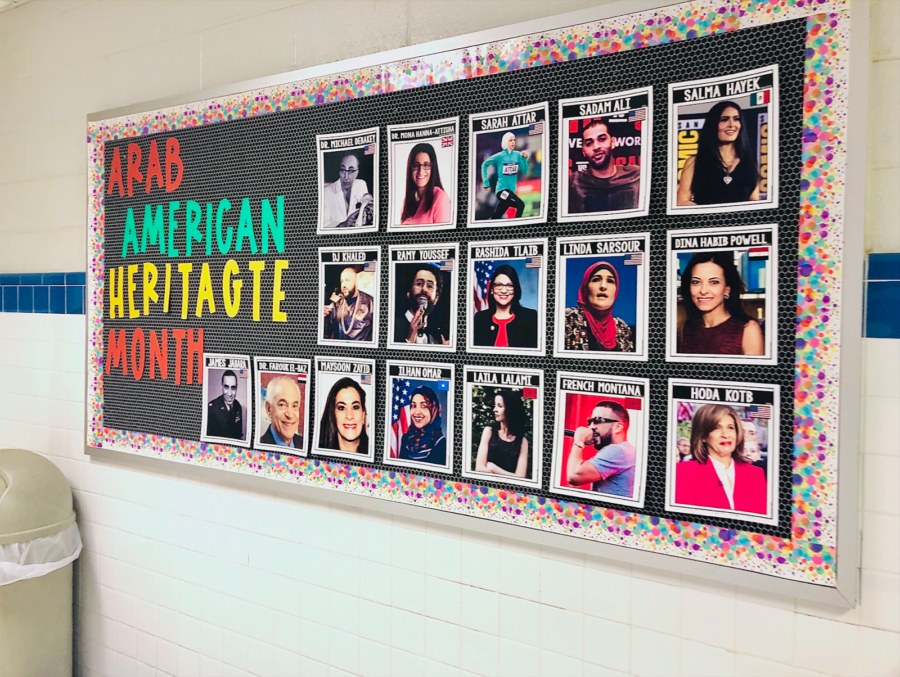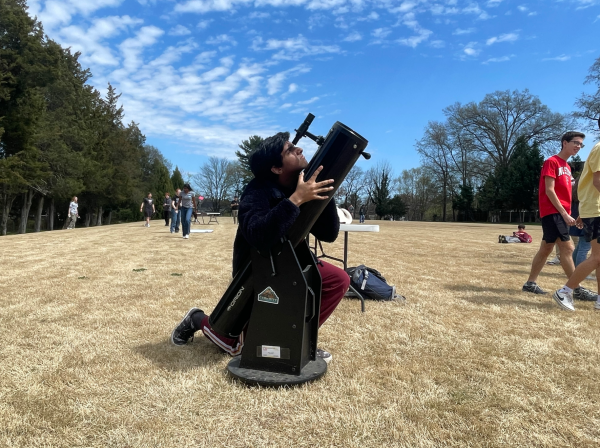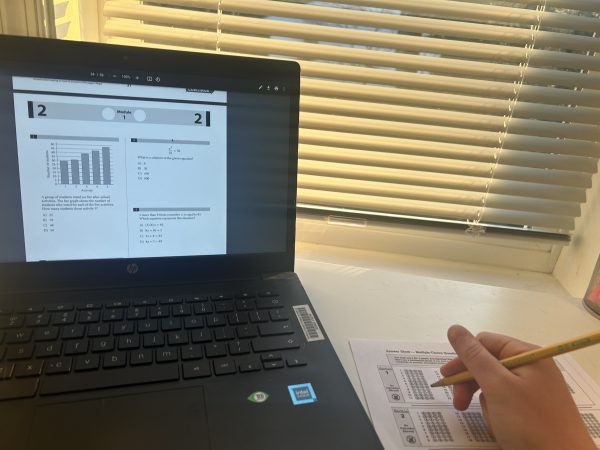FCPS declares April as Arab American Heritage Month
School Board honors Arab American Heritage
An Arab American Heritage Month display set up in the Blue hall in advance of April.
Fairfax County Public Schools (FCPS) recently issued a proclamation honoring April as Arab American Heritage Month.
The Arab American Heritage proclamation, passed at Luther Jackson Middle School during the March 30th school board meeting, served as a first. After school board member-at-large Karen Keys-Gamarra motioned for the resolution, it was put into place unanimously by the school board.
While honoring the Arab American role in contributing to American history, it acknowledges that “many Arab Americans and people of Middle Eastern heritage are still combating post 9/11 anti-Arab sentiments and hence, face challenges every day.”
In the blue hallway at McLean High School, a bulletin board was decorated in honor of Arab American Heritage month, featuring prolific Arab American figures from civil rights activist and Women’s March co-founder Linda Sarsour to Congresswoman Rashida Tlaib.
“I would hope that there will be more events or activities celebrating Arab American Heritage month [following the school board proclamation],” said counselor Jennifer Fernandez, who helped facilitate the bulletin board display.
The resolution came directly before President Joe Biden’s March 31st historic move issuing a proclamation recognizing National Arab American Heritage Month, in which the administration declared that it “call[s] upon all Americans to learn more about the history, culture, and achievements of Arab Americans.” Although Biden has acknowledged the month in the past, this is the first official presidential proclamation to honor the matter.
“I’m glad [the Arab student population is] being recognized, even though there is still a lot of improvement needed from the school system,” said McLean’s Palestine Solidarity Club co-president Karine Khayo. “It’s a step forward.”
Between the 1880s and 1920s, the first batch of mostly Syrian and Lebanese workers emigrated from their home countries to the United States, particularly to the midwest. Arab Americans continued to play a major role in American industry, entrepreneurship, and beyond over the next century.
“I feel like [the proclamation] gives us a lot,” said Arab American sophomore Zaid Abughazaleh, “It makes me as an Arab American feel more supported, noticed, and represented.”
According to leading Arab American organizations such as the American-Arab Anti-Discrimination Committee (ADC), Arab Americans faced the brunt of discrimination following the September 11th attacks in 2001 and subsequent PATRIOT Act, which many view as having been weaponized against Arab Americans for surveillance purposes.
Your donation supports the McLean High School's independent, award-winning news publication.













